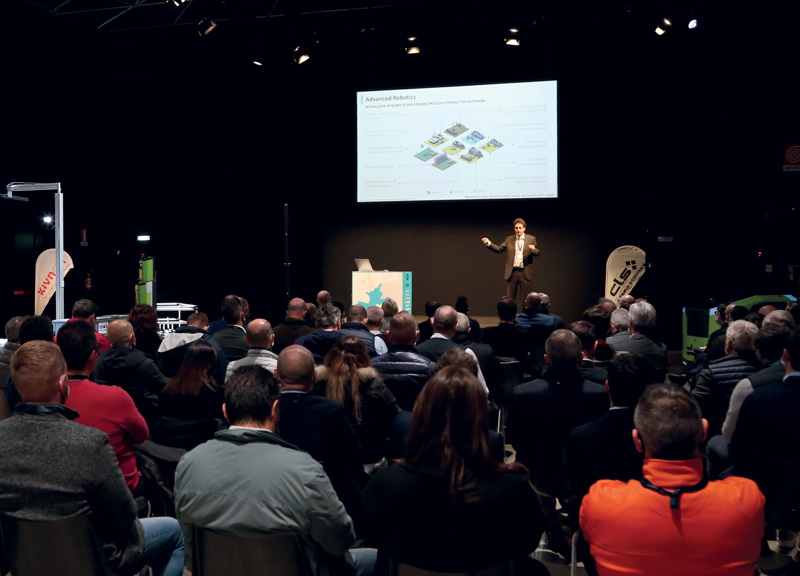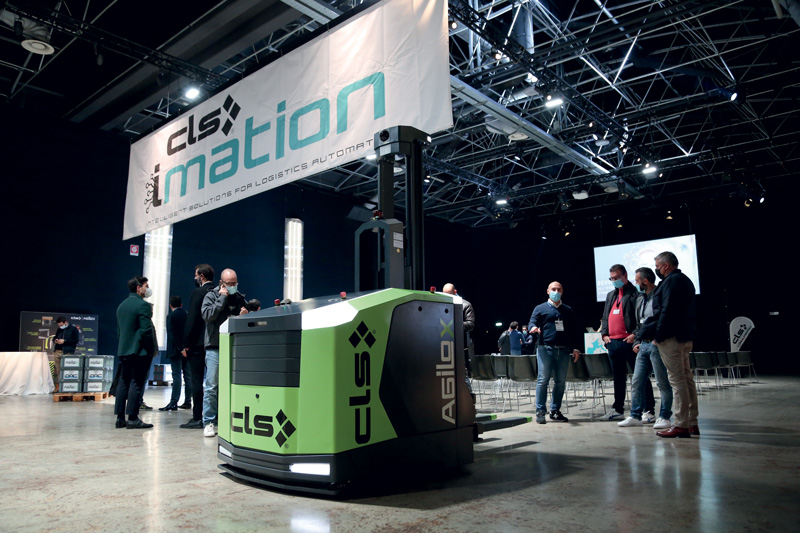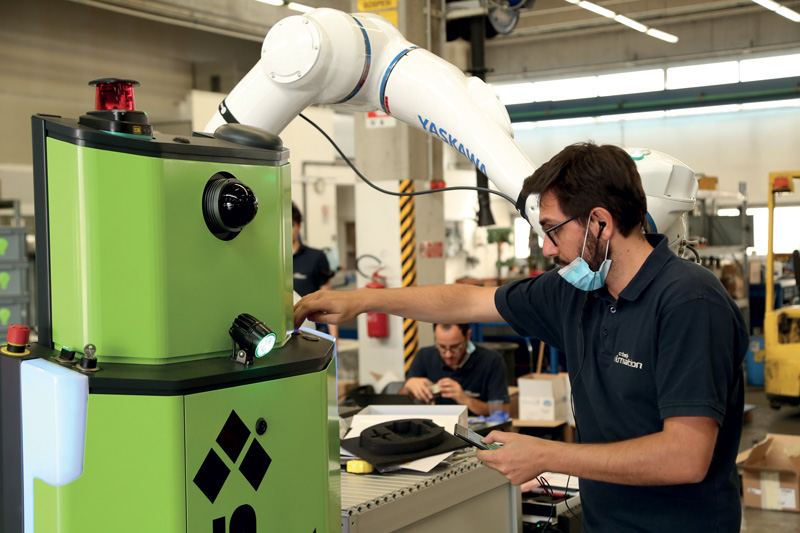Touching innovation
At the #Touchinnovation event held in Milan in early November, CLS iMation, the CLS business unit dedicated to Intelligent Solutions for Logistics Automation, showcased its technology for the factory of the future. A real example of logistics optimisation in the food and beverage sector was also presented during the event.
Not just a simple “showcase”, but a real demonstration of innovation and valuable consulting, was the protagonist of the #Touchinnovation event organised by CLS iMation, the CLS business unit dedicated to Intelligent Solutions for Logistics Automation. The last appointment, held in Milan, marks the end of a roadshow divided into a series of events throughout Italy with a single common goal: to demonstrate and allow companies to approach innovation as a simple simple and feasible solution, if they are supported by an experienced consultant. According to a survey by the Boston Consulting Group, a decrease in population often corresponds to a growth in demand for labour, which is already creating crises and labour shortages in countries such as Germany, for example, and will soon affect Italy as well. This is where the autonomous factory comes into play through the use of advanced robotics technologies.
Integration, flexibility and borderless modularity
In the spotlight during the event were process digitisation and flow control systems and the enabling technologies of advanced robotics, which allow simple, immediate integration and system adaptability to processes. “CLS iMation revolutionizes the perception of automation as something that makes processes more rigid; today’s technologies allow the inclusion of automation while maintaining previously unimaginable flexibility, scalability and modularity of processes. Thanks to the advanced digitisation of processes and control of flows, we can achieve an increase in productivity, quality and safety, greater agility understood as the ability to adapt, and with very short reaction times, to have a factory and a production system that move very quickly to keep pace with market evolution,” said Michele Calabrese, iMation Business Unit Manager. The CLS iMation Business Unit was created in response to these rapid changes. It operates nationally and internationally with a team of specialist engineers who work strategically on several levels: from research and design, to the complete overhaul of processes and new plants, to the supply and implementation of handling solutions, through to maintenance and service. The aim: the integration of systems to introduce automatic handling processes and the connection of machining centres. “The key principles that CLS iMation relies on for the introduction of advanced technologies are flexibility, so as to respond to changes and different inputs without stiffening processes, modularity, allowing continuity of systems, and scalability, allowing a pilot project to start very quickly while focusing staff on value-added activities, thanks to real-time data on the entire workflow, improved process quality and reduced costs,” Calabrese concluded.
A bridge between automation and innovation
The partnership with Alfaproject.net acts as a bridge between automation and innovation through the digitisation of processes. “The market demands to be more responsive and faster and, at the same time, the engineering and technological complexity of the products has increased; this is reflected on the entire production side and consequently costs increase, while the market demands to reduce them,” explained Alessandro Dandolo, CEO and Co-founder of Alfaproject.net. These are the reasons why CLS and Alfaproject.net joined forces to create a single hub of expertise and technology to address these crucial issues for the factory of the future. “Clients need a single, integrated solution, without having to manage different solutions from different vendors, with different logics and above all with different distribution of responsibilities within processes that are not compatible with the real needs that the company has. We deal with process optimisation, introducing new logic, new methodologies and new tools to redesign them, aiming at efficiency to reduce costs, as well as increasing performance,” continued Dandolo. All with the intention of covering the real needs of a production plant throughout its transformation into a real smart factory.
A real example of logistics 4.0 project
During the event, a specific project developed by iMation specialists to meet the needs of a food & beverage multinational at their Belgian plant was presented.
Completed in around two weeks during the pandemic, the project enabled the company to streamline processes and make them easily manageable, increase productivity and reduce costs and waiting times. This was achieved by implementing a fully customized turnkey system with innovative technologies such as collaborative robots and Agilox Intelligent Guided Vehicles. These vehicles collaborate with operators in complete safety and integrate with each other to carry out material handling, palletising and depalletising, and storage tasks, while providing overall, completely autonomous, automated logistics flows for the entire plant.




